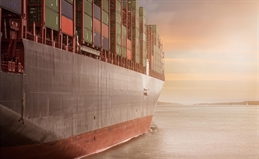
The World Shipping Council (WSC) said it welcomes the European Parliament’s ENVI Committee's adoption of its report on the proposal for the revision of the EU ETS which it said is a crucial step towards the achievement of the goals of the EU Green Deal.
WSC — the primary industry trade association representing the international liner shipping industry — noted, however, that improvements to the ETS proposal are still needed.
As part of the EU Green Deal, the proposal from the European Commission on the revision of the EU ETS Directive is a vital opportunity for the EU to contribute to the transition to zero carbon for shipping.
It said that policymakers in the European Parliament have a key responsibility in working for good policy and ensuring that the EU ETS carbon price is not simply a tax but also an incentive that drives sustainable change.
"While WSC acknowledges the ENVI Committee's commitment to strengthening the EU's climate ambitions through the reform of the EU ETS, the report adopted in the ENVI Committee could put at risk the needed drive to reduce GHG emissions in the maritime sector," WSC said in a statement.
It added that WSC is committed to working for decarbonisation of shipping both in the EU region and globally and ahead of the vote on the adoption of the EU ETS report in Plenary and the subsequent trilogue negotiations, WSC is calling on regulators to consider several crucial factors.
WSC said the design of the EU ETS needs to take into account the life-cycle emissions of renewable and low-carbon fuels in order to incentivise first-mover action adding that the lack of a life-cycle emissions approach risks diverting investments away from solutions that require low-GHG fuel production and supply to enable innovative technologies onboard.
The industry group also sought the EU to reconsider the misconception that a broader geographical scope is equal to higher ambition.
It added that the intra-EU scope for maritime avoids carbon leakage and the concerns about the loss of competition for EU ports.
"With multiple proposals on the table at the IMO, it is crucial not to create additional barriers to a global agreement. Moreover, there are no risks for international trade distortions or retaliatory measures from third countries with an intra-EU scope," WSC said.
Meanwhile, the trade association also said that all parties that can influence the design and operation of ships should share the EU ETS costs.
It said that a faster transition to zero carbon in the shipping sector will be achieved through shared motivations to drive change.
"Vessel owners and operators currently operate with shared responsibility across a range of areas through mutual contracts. There is no reason to believe that the freedom of contract system that works globally would not work for the EU ETS. Owners and operators share responsibility for bringing down GHG emissions in shipping, and completely excluding one entity will not lead to the needed investments in new engines and fuel types," WSC further said.
WSC added that it looks forward to working further with the EU in the next steps toward the shared goal of decarbonising international shipping through a revised ETS that is "ambitious, effective and practical."



